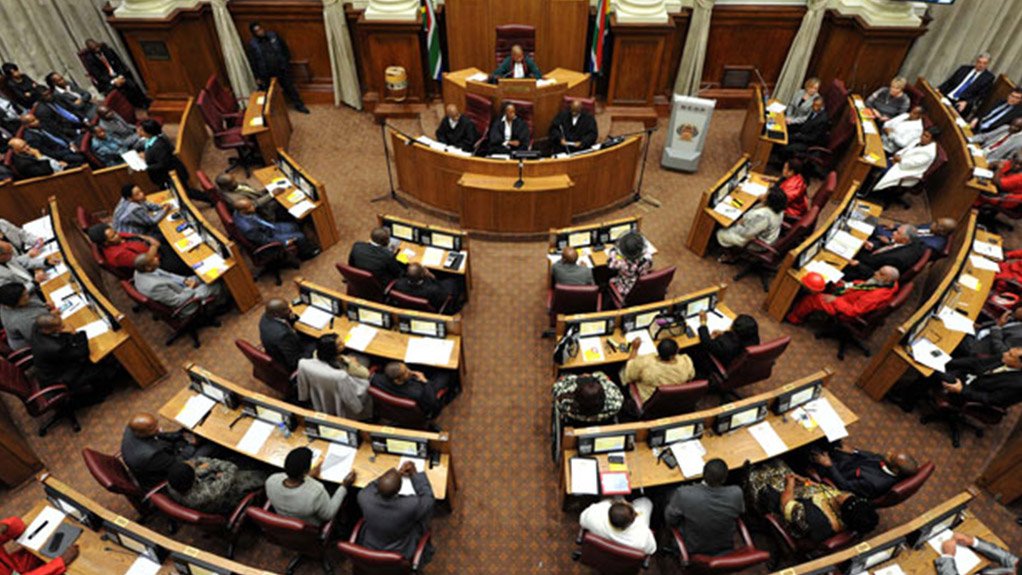/ MEDIA STATEMENT / The content on this page is not written by Polity.org.za, but is supplied by third parties. This content does not constitute news reporting by Polity.org.za.
Members can use various avenues to raise issues for discussion in plenary sittings of the National Assembly (NA) and National Council of Provinces (NCOP). These include:
- Subjects for discussion
- Members’ statements
- Questions (for written or oral reply)
- Urgent matters of public importance
Subjects for discussion
A subject for discussion allows the House to debate a particular topic without the House having to take a decision at the end of the debate. A Member can propose a motion for the House to express an opinion on a particular issue. Such a motion is moved as a notice of motion and, if it is in keeping with the Rules and Guidelines, is published on the Order Paper under further business. Once published, it is up to the Member’s party to canvass for multi-party Programme Committee or Whippery in the NCOP to schedule the motion for debate. If the Programme Committee agrees to schedule the motion, it is placed on the Order Paper and debated. If not scheduled for debate, the notice of motion lapses after six weeks or when the NCOP rises on the last sitting day in any year.
Members’ statements
These usually occur on Tuesdays and Thursdays. Members of each party (according to an agreed party rotation) may make a statement on any subject relevant to the national sphere of government, including topical international and national issues and constituency matters. These statements may not exceed one and a half minutes. Up to six Ministers can respond to each question for up to two minutes each. In terms of NCOP Rule 251 the executive may make a statement on policy issues not exceeding twenty minutes and followed by comments from Members of three minutes.
Questions
There are two forms which questions can take – those for oral reply and for written reply – additionally, there are also urgent questions. Replies to questions for written reply are not made in a plenary sitting, but appear on the Question Paper. Each member may ask three questions a week for written reply. If they do not receive written replies within 10 parliamentary working days after the questions first appear on the Question Paper members may ask for the questions to be placed on the Question Paper as questions for oral reply.
Questions for oral reply to Cabinet Ministers are dealt with according to a cluster system of government portfolios. Clusters answer questions for oral reply on a monthly or term basis. The President answers questions in the NA at least once a quarter during session time within the annual Parliamentary programmes. In the NCOP, he answers questions once annually and an annual address. The Deputy President answers questions in the NA once a month and once per quarter in the National Council of Provinces. Questions for oral reply to the President are limited to six and the maximum total time allocated for replies and supplementary questions is three hours, except that in the NCOP the sitting is dedicated to questions.
A Member may write to the Speaker or Chairperson to ask for an urgent question for oral reply to be put a particular Cabinet Minister at the next question session for Ministers or to the President or Deputy President on the next applicable question day. The Speaker or Chairperson may approve an urgent question which has a motivation for why it is urgent and after consulting the Leader of Government Business. Urgent questions take precedence over all others on the relevant question day.
Urgent matters of national public importance
The Speaker or Chairperson has the discretion to grant or turn down a request from a Member who, in writing, requests the scheduling of an urgent matter of public importance. In exercising this discretion, the Speaker or Chairperson must apply specific criteria set out in NA Rule 130(8) or NCOP Rule 84 in case of the Council
Issued by Parliamentary Communication Services
EMAIL THIS ARTICLE SAVE THIS ARTICLE
To subscribe email subscriptions@creamermedia.co.za or click here
To advertise email advertising@creamermedia.co.za or click here











